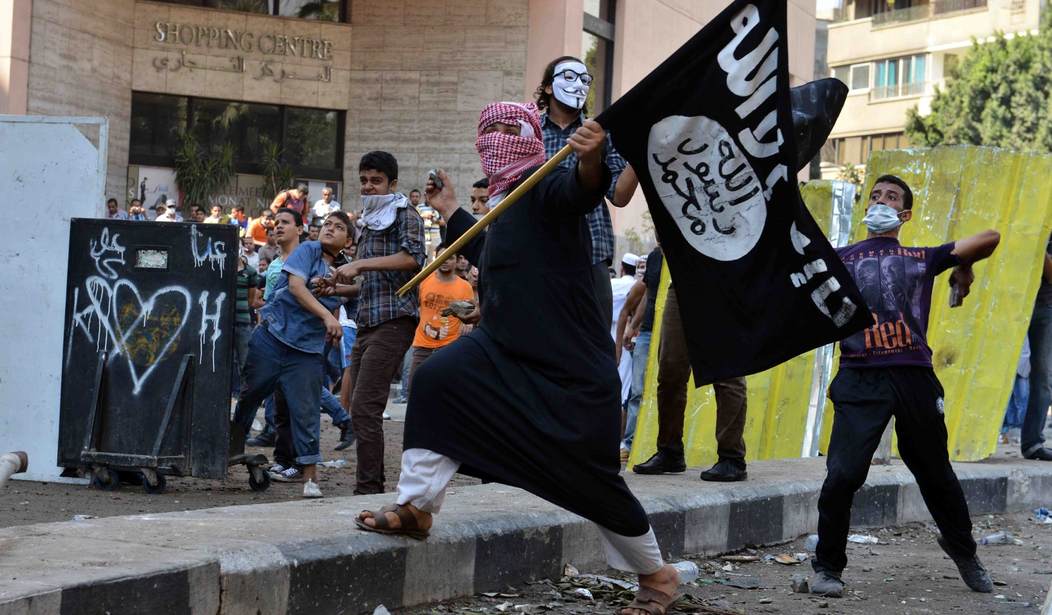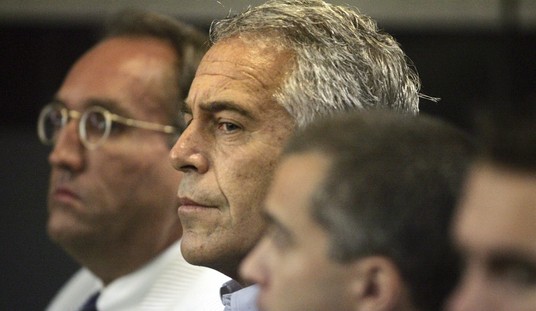Two senior leaders of Egypt’s banned Muslim Brotherhood were reportedly killed in a shootout with government forces, the Ministry of Interior announced late yesterday:
After 3 years, MB ldr. Mohamed Kamal captured in home province of Asyut. Accused of being behind special committees. https://t.co/scZn6TH5F3
— Mokhtar Awad (@Mokhtar_Awad) October 3, 2016
Kamal had become the MB’s black sheep, with many leaders accusing him of being behind MB violence & he recently resigned (pressured)
— Mokhtar Awad (@Mokhtar_Awad) October 4, 2016
Reuters reports:
Egypt’s Interior Ministry said early on Tuesday that it killed a senior Muslim Brotherhood leader it said was responsible for the group’s “armed wing” and another member of the group in a shootout on Monday.
Mohamed Kamal, 61, a member of the group’s top leadership, and Yasser Shehata, another leader, were killed. The ministry said it raided an apartment in Cairo’s Bassateen neighborhood after learning it was used by the leaders as a headquarters.
Both Kamal and Sehata were wanted by Egyptian authorities since the dissolution of Mohamed Morsi’s government in August 2013:
Shehata was sentenced in absentia to 10 years in prison for “assaulting a citizen and forcibly detaining the person in the headquarters of the freedom and Justice party,” the political wing of the origination, the ministry said in its statement.
Kamal had been sentenced to life in prison on two counts in absentia, added the statement.
Kamal is one of the most prominent leaders of the Muslim Brotherhood and a member of the Guidance Bureau. He was in charge of the supreme Administrative Committee, known as the youth committee. He resigned from the committee in May 2016, because the committee was opposed by other top leaders in the organization.
It is precisely Kamal’s role in inciting violence through the Muslim Brotherhood’s youth committee that brought him into conflict with other leaders of the group. He was directly responsible for the creation of the youth cadres that continue to wage a widespread terror campaign targeting army, police and other Egyptian government officials.
In June, Mohamed Hamama explained Kamal’s role in establishing the Muslim Brotherhood’s current terror wing:
The roots of dissent grew out of this crisis management committee, with Kamal and [Ali] Bateekh among its members. They were elected by the group’s Shura Council in 2013, following the end of the mandate of the Guidance Bureau, the group’s leadership body. In the committee’s view, Supreme Guide Mohamed Badie still retains his position despite his imprisonment, while the committee takes on the Guidance Bureau’s responsibilities given the absence of most of its leaders.
By June 2014, divisions in opinion on major issues, such as the group’s position on violence, began to fester. According to a former Brotherhood leader from the Delta who preferred not to be named, Kamal, Bateekh and others called for a meeting in January 2015 to discuss the revolution’s anniversary. At that meeting, they spoke of violence as an inevitable path. The meeting culminated in the formation of two new committees to adopt a violence-oriented strategy: the Revolutionary Punishment Committee and the Popular Resistance Committee.
The constituencies affiliated with Kamal, Bateekh and other dissenters live in the areas where the greatest violence against the state has been waged in the last two years: Cairo, Alexandria, Qalyubiya, Monufiya and the northern part of Upper Egypt.
Coincidentally, prior to the announcement of Kamal’s death, research Moktar Awad published an assessment of the “Islamist insurgency” in Egypt, noting Kamal’s role in the Muslim Brotherhood’s terror wing, including its most recent incarnation, Hassm, which has assassinated several top officials responsible for local crackdowns on the Muslim Brotherhood:
NEW on #MENASource by @Mokhtar_Awad on #Egypt‘s assassination attempts and Islamist insurgency https://t.co/fHXk6aiTf0 pic.twitter.com/CWHnsIw6vj
— Rafik Hariri Center (@ACmideast) October 3, 2016
Immediately after Kamal began leading a faction of the Muslim Brotherhood towards a “creative revolutionary path,” a series of statements during 2015 endorsed the group’s campaign of violence:
- In January 2015, the group’s official website posted a statement calling for a “long, uncompromising jihad” and directing its members to prepare for such. This statement was posted just a day after top Muslim Brotherhood leaders were hosted at the State Department.
- A group called the “Revolutionary Punishment Movement” closely tied with the Brotherhood issued a statement in early February warning all foreigners and diplomats to leave the country by February 28, 2015, or possibly be faced with becoming targets in their attacks.
- In May 2015, the Muslim Brotherhood published an official statement in English and in Arabic stating that “the revolutionary option with all its means and mechanisms is its strategic choice from which there will be no retreat,” and justifying the killing of politicians, judges, security officials and media personnel.
I reported here at PJ Media in June 2015 about the escalation of violence by the Muslim Brotherhood youth cadres during 2015, beginning with the published call for a “long, uncompromising jihad” in January 2015.
This past June, I reported on the arrest of an IED terrorist cell composed of Muslim Brotherhood members operating out of Alexandria that attacked military, police, diplomatic and business targets.
Meanwhile, bills calling for the designation of the Muslim Brotherhood as a terrorist organization have stalled in Congress.
In the House, H.R. 3892, the “Muslim Brotherhood Terrorist Designation Act of 2015,” a bipartisan bill introduced by Rep. Mario Diaz-Balart (R-FL) and currently with 68 cosponsors, passed the House Judiciary Committee in February on a 17-10 vote.
But House Speaker Paul Ryan has not brought the bill up for a full House vote.
The Senate companion bill, S. 2230, introduced by Sen. Ted Cruz (R-TX) and currently with 7 cosponsors, including Sen. Ron Johnson (R-WI), chairman of the Senate Homeland Security Committee, is bottled up in the Senate Foreign Relations Committee.
Foreign Relations chairman Sen. Bob Corker (R-TN) has yet to bring the bill up for a committee vote — or even to hold hearings on the matter.
Bill cosponsors have expressed frustration with the Obama administration’s inaction on the Muslim Brotherhood even as terror attacks by the group continue. The group has targeted Egypt’s Coptic Christian community, which I reported on here just a few weeks ago based on my April 2014 survey in Upper Egypt of sectarian attacks by the Muslim Brotherhood.
With Congress in recess until after the November 8 election, the only opportunity for these bills to be considered in either the House or Senate would be in the lame duck session.









Join the conversation as a VIP Member